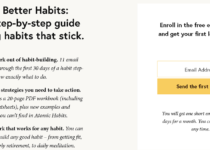Crafting the Future: Exploring Digital Marketing and AI
As the digital world spins ever faster, the realms of digital marketing and artificial intelligence (AI) continue to evolve at a breathtaking pace. “Crafting the Future: Exploring Digital Marketing and AI” plunges into this dynamic intersection, unpacking how cutting-edge AI technologies are not just reshaping but revolutionizing the marketing strategies of tomorrow. From personalizing customer experiences to automating complex campaigns, AI’s role in digital marketing stretches beyond mere assistance to becoming an integral, transformative force. Join us on a thought-provoking journey as we delve into the depths of AI-driven strategies, understanding how they are not just trends but essentials in sculpting the future of digital engagement and brand success. Uncover the possibilities, challenges, and innovations as we step into a new era of marketing — where intelligence meets intent and creativity meets calculation.
The Evolution of Digital Marketing with AI Integration
Digital marketing has undergone a seismic shift since its inception, transitioning from simple email campaigns to complex, data-driven strategies powered by advanced AI technologies. The integration of AI into digital marketing has not been overnight but a gradual process that has significantly enhanced efficiency, accuracy, and personalization.
Initially, digital marketing strategies were largely manual, time-consuming, and based on best-guess scenarios. Marketers had to rely on broad segmentation and rudimentary tools to reach their audience. However, with the advent of AI, the landscape has dramatically transformed. AI algorithms now enable marketers to analyze vast datasets, predict trends, and make informed decisions, thereby increasing the effectiveness of their campaigns.
The AI revolution in digital marketing began with the automation of simple tasks, such as scheduling posts and sending automated emails. But today, AI’s role encompasses more sophisticated functions like content generation, predictive analytics, and personalized customer experiences. This evolution signifies a shift from digital marketing being a mere tool for reaching audiences to becoming a strategic ally in understanding and engaging them.
How AI Transforms Digital Marketing Strategies
AI’s impact on digital marketing strategies is profound and multifaceted, fundamentally altering how marketers approach campaign planning and execution. One of the most significant transformations is the ability to deliver personalized content to consumers. Through AI, marketers can now craft personalized messages at scale, targeting individuals based on their preferences, behaviors, and purchase history.
Moreover, AI-powered tools have made it possible to automate complex decision-making processes. For instance, AI algorithms can optimize ad spend across multiple channels in real time, ensuring the best possible ROI. This level of automation and precision was unthinkable just a decade ago.
AI also transforms digital marketing strategies by enhancing the ability to predict consumer behavior. With machine learning algorithms, marketers can forecast trends, identify potential market shifts, and adjust their strategies accordingly. This predictive capability enables marketers to stay ahead of the curve and align their efforts with future consumer demands.
Key AI Tools in Digital Marketing
In the realm of digital marketing, several AI tools stand out for their ability to streamline operations and provide deep insights. Chatbots, for example, have revolutionized customer service by offering 24/7 assistance, answering queries, and even facilitating purchases, all without human intervention.
Another powerful AI tool is AI-driven content creation platforms. These platforms can generate high-quality, relevant content based on specific keywords and content strategies. This not only saves time but also ensures that the content is optimized for search engine rankings.
Predictive analytics tools are also indispensable in the digital marketer’s toolkit. By analyzing data on consumer behavior, these tools can predict future trends, enabling marketers to tailor their strategies to meet anticipated demands. This foresight allows for more targeted and effective marketing campaigns.
While this excerpt covers the initial sections of the proposed outline, expanding each section with detailed insights, examples, and case studies will enrich the article, creating a comprehensive guide to the intersection of digital marketing and AI. Remember, the key is to provide value to the reader through actionable insights and forward-looking perspectives on how AI continues to shape the digital marketing landscape.


